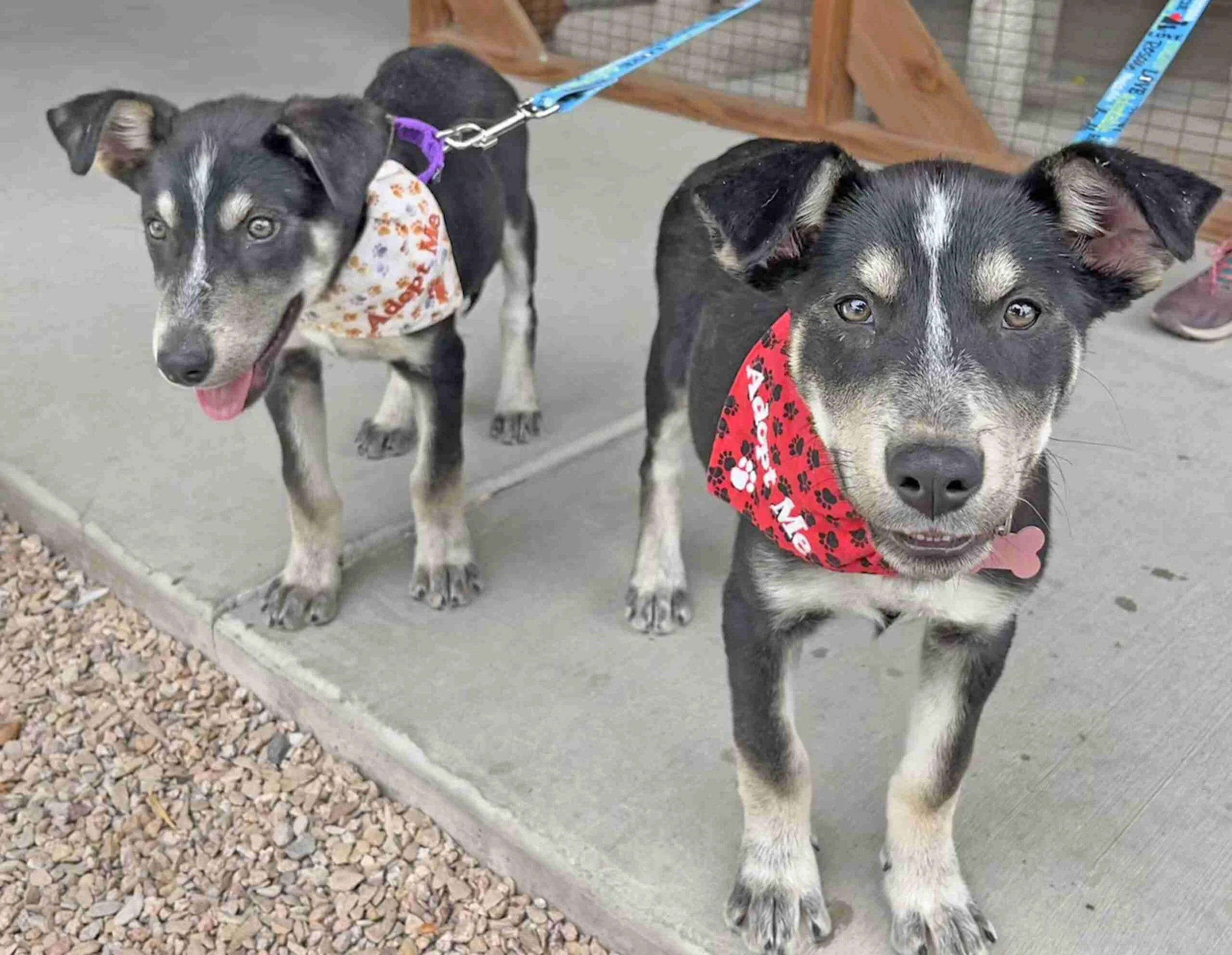Socialize Your Puppy
Like human development, the early stages of puppy development have a huge impact on a dog’s life. When becoming a puppy parent this responsibility must be taken seriously. Proper training and socialization can prevent many of the “problem behaviors” that dogs develop later in life which sometimes means they are surrendered to us or other shelters as young adults.
Every day your puppy sees, hears, smells, tastes, and touches new things, some of which can be frightening. Socialization, or introducing your puppy to new people, places, and experiences, will be a lifelong process for your dog, but it’s best to start when your dog is young. The key is making sure your puppy stays safe, happy, and confident as they explore the world.
Before taking your puppy out into the world, be mindful of the risks of being exposed to potentially fatal diseases from other animals such as parvo, distemper, and hepatitis. Check with your veterinarian to confirm that your puppy has completed vaccinations and can be safely introduced to other animals. Puppies adopted from Second Chance have basic vaccines, but they will need boosters.
The idea behind socialization is to introduce a puppy to different types of people and pets: loud, quiet, young, old, tall, short, active, inactive, shy, and outgoing. Seek out people wearing hats, glasses, backpacks, gloves, masks, helmets, big jackets, hoods, and headphones to interact with the pup. Introduction to other dogs should start with small puppy play groups to ensure a positive social experience. Once he is confident with other puppies, introduce a quiet, space-respecting older dog and expand from there.
Positive experiences at first are the key. The best way to socialize a puppy is to avoid frightening experiences until your dog learns what’s normal and safe. Puppies’ minds are especially impressionable, and bad experiences can make as much of an impact as good ones. An encounter with an aggressive dog could leave your puppy with a phobia of other dogs that may be difficult to overcome. Use caution when planning new adventures with your puppy, and don’t hesitate to remove them from a situation if they appear afraid or anxious. If your puppy is afraid of certain things, remove them and re-introduce them very slowly while adding positive reinforcement to the situation like treats and praise. If your puppy is frightened of someone wearing a hat, have that person feed the puppy yummy treats. This way the puppy will learn to associate the initially frightening stimuli with something positive instead.
The bottom line: Safely exposing your puppy to the world and those in it will set her up for a happy, curious life. The result can be many years of fun adventures together.
Since 1994, the Animal Resource Center and the Shops of Second Chance Humane Society have been dedicated to serving animals in Southwestern Colorado. Our adoption hours are every day from 11 a.m. to 5:30 p.m. We are located at 177 County Rd 10, Ridgway, CO. You can view our shelter pets and services online at secondchancehumane.org.



